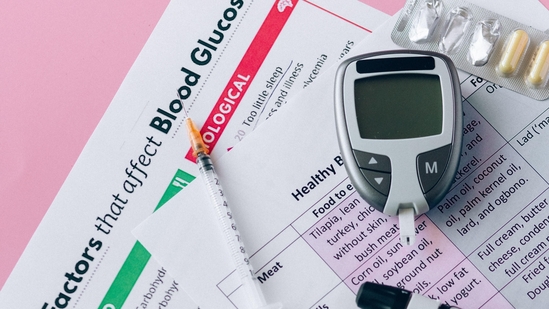
Worried about blood sugar spikes at night? Doctor shares tips to manage diabetes
5 months ago | 5 Views
For people with diabetes, nights can be difficult with sudden blood sugar spikes. In an interview with HT lifestyle, Dr Apurrva Sawant, Preventive Healthcare Expert said, “Blood sugar levels in certain diabetics might fluctuate during the night, disrupting their sleep. Sleep issues may also have an impact on insulin levels.”
Dr Apurrva Sawant further mentioned a few preventive tips that can help in managing nighttime blood sugar spikes.
Establish a consistent sleep schedule:
Consistent sleep is essential for good health and blood sugar control. Make a habit of going to bed and getting up at the same time every day, especially on weekends. Quality sleep helps to manage hormones that govern hunger and blood sugar levels. Lack of sleep can cause insulin resistance, making diabetes more difficult to treat. Create a relaxing bedtime ritual, such as reading or practicing relaxation techniques, to indicate to your body that it is time to unwind.
A glass of water:
While staying hydrated is crucial, try to restrict your fluid intake in the hour before bedtime. Drinking too much water can lead to frequent urination, interrupting your sleep. However, staying hydrated throughout the day improves general health and can help minimise blood sugar rises.

Monitor blood sugar levels:
Before going to bed, you should check your blood sugar levels. This practice will help you learn how your body reacts to food, medication, and regular activities. If your levels are higher than you want, you can take appropriate action, such as changing your evening meal or insulin dose. Ideally, strive for a bedtime blood sugar level that is within your goal range, since this sets the setting for consistent levels throughout the night.
Limit your use of caffeine, alcohol:
Avoid caffeine before bedtime as it can keep you up at night and may temporarily increase blood sugar levels. Limit alcohol consumption, especially if it interferes with sleep, as it can also affect blood sugar levels.





















